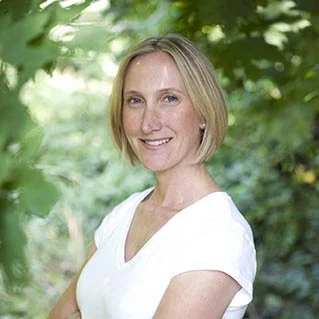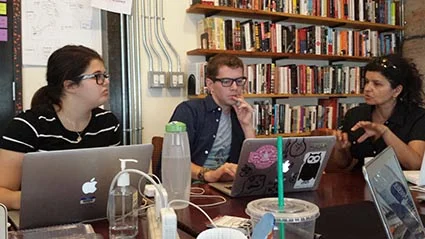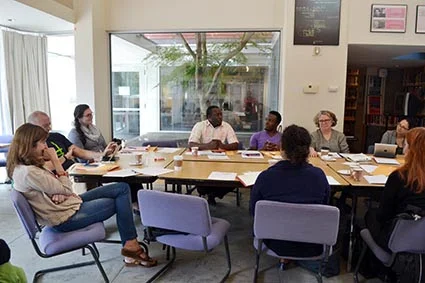Friends and Colleagues
Inside PROOF
- PROOF to launch "Giving Tuesday" Campaign
Photographer Blake Fitch on Finding Meaning and Inspiration
- Partnering with the U.N. on Human Rights Education
Traveling With PROOF
- Kahn Teaches Refugee Workshop at Clark University
Perspectives From Our Blog
- Interview with Chris Bartlett on Capturing the Abuse of Innocents
Participants in the UN-led Photojournalism Program, partnered with PROOF.
Friends and Colleagues
As conflict and terrorism are mushrooming around the world, where are the inspiring stories of peace?
Working toward peace is a slow and steady process that rarely grabs media attention. Yet, some of those living with serious conflict can inspire us to keep our focus now, when the challenge of building peace is so urgent.
Let’s take a moment to recognize the work of some of the young people who, though not making the headlines in our morning paper, have made the this commitment.
Much of the world’s violence is recasting the lives of the young. It's hard for us to imagine what it is like to grow up with extreme violence and danger.
But even in some of the most troubled circumstances, the world's young are taking steps, often in the face of acute personal risks, to build peace in their societies. For many youth living in conflict zones, peace is not an abstract ideal–it is a matter of life or death.
In Iraq, a community of young people called Salam Shabab is working on peacebuilding using a reality television series to empower teens and a social networking site where teens can connect.
In South Sudan, a group called Sawa Shabab has created television, radio, and online venues to develop peacebuilding skills in the young.
Young Americans, too, feel the effects of global conflicts. Growing up in the post-9/11 era, they have known only a world where their country has been fighting major wars. They are bombarded with streams of information and graphics showing war and terrorism but learn little on the dynamics of peace.
It is our duty to bridge that gap by shining a light on global peace efforts, both large and small.
Let us make sure our young are fully informed about the tools we possess for managing conflict and avoiding war.
And let us look for inspiration to the acts of those who are working to resolve conflict in their communities, who give us hope that we are not doomed to live forever in the throes of conflict.
In the spirit of the International Day of Peace, which took place September 21, let us never forget to keep our sights on peace and the unsung warriors on its front lines.
Inside PROOF
PROOF LAUNCHES "GIVING TUESDAY" CAMPAIGN
PROOF will be participating in an innovative online campaign to celebrate giving during the holiday season.
Highlighting the importance of generosity and recognizing givers, GivingTuesday was started as a response to commercialization and consumerism by the 92nd St. Y and the U.N. Foundation. Giving Tuesday itself takes place the Tuesday after Thanksgiving, this year on December 2.
Here at PROOF, we are showcasing a rarely recognized form of generosity we call “extreme giving.”
People who give of themselves are among our most inspiring givers. These heroes, who put their own lives at risk to help others in conflict-riddled places, have made some of the most moving acts of generosity and self-sacrifice humanly possible.
Extraordinary actions taken by “ordinary” people–farmers in Rwanda bus drivers in Bosnia, villagers in Cambodia and Sri Lanka–redefine the very meaning of giving.
It is this spirit of giving that unites us all and that we at PROOF would like to celebrate with you.
Photographer Blake Fitch
Photographer Blake Fitch on Finding Meaning and Inspiration
PROOF brought the Legacy of Rape to Colombia, where sexual assault is a derivative of the persistent conflict and turmoil that has plagued the nation.
Too often, the victims are powerless, left to accept their fate without a chance to fight for the justice they need in order to move on from the horror.
In an attempt to give these women the voice they deserve, PROOF partnered with Blake Fitch, a documentary photographer whose client list includes such publications as The New Yorker and the New York Post.
Blake traveled with PROOF to Colombia to meet with victims, capturing powerful portraits as PROOF gathered their stories. The testimony and photos were then developed into an exhibit that has since traveled around the country.
“Photographing these women and hearing their stories was upsetting, eye opening and, most of all, inspiring. The opportunity to use my skills in the name of justice was profound, and it will undoubtedly impact my future work. This project with PROOF has been some of the proudest, most meaningful work I have ever done,” Blake said of the experience.
These women have taken a step for their country to confront an issue that has long been considered taboo to discuss publicly.
Raising their voices, their stories have had a huge impact, spreading awareness and opening a public dialogue about the roots of sexual violence in Colombia and what can be done to stop it.
The success of the project has led to a continued partnership with the UNFPA and the Universidad de los Andes to reproduce the exhibit into a poster series in order to expand distribution, allowing the campaign to reach even the most remote areas of Colombia.
Participants in the recent United Nations International School pilot program on photojournalism in human rights, with PROOF.
Partnering with the U.N. on a Human Rights Photojournalism Program
This August, PROOF worked with the United Nations International School to pilot a photojournalism program in human rights. Ten high school students, who study global politics at UNIS, participated in the program.
Organized by UNIS teacher, Abby MacPhail, with guidance from New York Times photojournalist Michael Kirby Smith, students used photography and investigative journalism to explore human rights issues in New York City.
Students learned about human rights issues related to aggressive policing, homelessness, workers' rights, violence against members of the LGTBQ community, and immigration through visits to local organizations including the Police Reform Organizing Project, Anti-Violence Project, Hispanic Resource Center, New York State Youth Leadership Council, Street Vendor Project, Urban Justice Center, Workers Justice Project, Picture the Homeless, and Center for Constitutional Rights.
The culmination of their experiences and work will be displayed in an exhibit designed and curated by PROOF. The display, called, “I Don’t Feel Protected,” will also be adapted into a screenplay that will be performed by the UNIS theater department in the coming year.
Participants in the United Nations International School's pilot program on photojournalism in human rights, with PROOF.
Student Emma Blau describes her experience, "I enjoyed the program because, while you can talk about human rights issues, it is different to actually experience them. That makes the issues much more real. I liked how the program combined learning about issues with a creative aspect, so it wasn't only educating yourself but also being creative and teaching others through that creativity."
According to Sol Sottoli, "I have never had a learning experience like this before. I enjoyed collaborating with PROOF on the photo exhibition. I felt I gained hands-on experience in photojournalism and local human rights challenges in New York."Your text caption goes here. You can change the position and width of the caption from the block settings tab.
Traveling With PROOF
Particpants in Leora Kahn's wokshop at Clark University
KAHN TEACHES WORKSHOP AT CLARK UNIVERSITY
From September 19 to 21, PROOF Executive Director Leora Kahn taught a three-day workshop at Clark University on taking refugee testimonies and constructing narratives.
The hands-on workshop brought together academics and field practitioners who work with refugees and other displaced people to develop skills in taking testimonies from the displaced and building effective narratives from them.
Participants benefited from a productive knowledge exchange in a multidisciplinary environment. They felt the experience helped them better understand how refugees’ narratives can play a role in exposing their plight.
Leora led the workshop with Dr. Anita Fobos, an anthropologist who has conducted research and outreach among refugees and other forced migrants in urban settings in the Middle East.
Perspectives From Our Blog
Check out our blog post published since our last newsletter:
Interview with Chris Bartlett on Capturing The Abuse of Innocents
October Media
Images from PROOF's Giving Tuesday #ExtremeGivers campaign.




